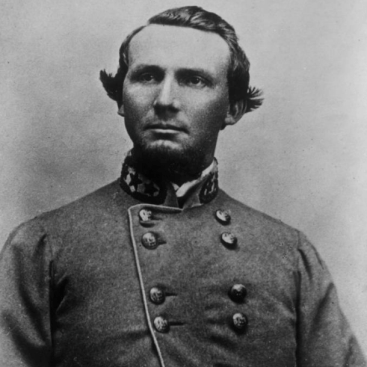In U.S. politics, the idea of states’ rights emerged soon after the creation of the federal government in the 1780s. The first two political parties, in fact, were the Federalists, who advocated for a strong central government, and the Anti-Federalists, who advocated for states’ rights.
The first person to be named after the concept was States Rights Gist, who was born in South Carolina in September of 1831.
His name was no doubt inspired by the Nullification Crisis (1832-33), which ensued “when South Carolina nullified a federal tariff that favored Northern manufacturing over Southern agriculture.” (Note that many babies born during this time period were not named immediately after birth.)
Several dozen other babies have been named “States Rights” (or something very similar) since then. Most of these babies were born in the southern U.S. during the mid-to-late 19th century. Some examples…
- State Right Horton (b. 1841 in Alabama)
- He had younger brothers named Union and Sumpter.
- State Right Montgomery (b. 1851 in Alabama)
- States Right Jolly (b. 1856 in South Carolina)
- States Rights Pettit (b. 1859 in South Carolina)
- He had twin brothers named George Washington and Andrew Jackson.
- States Rights Aycock (b. 1860 in South Carolina)
- One of his brother’s grandsons was also named States Rights Aycock (b. 1933 in South Carolina).
- One of his own grandsons was given the more subtle name States Richard Fowler (b. 1910).
- States Rights Crawford (b. 1860 in South Carolina)
- States Rights Gregory (b. 1860 in Mississippi)
- States Wright Gorham (b. 1871 in Arkansas)
- State Right Jones (b. 1880 in Mississippi)
- He had a son named State Right Jones, Jr. (b. 1920 in Mississippi) who started going by “States Rights Jones, Jr.” later in life. You can see his original name in the 1941 MSU yearbook.
- States Rights Gist Finley (b. 1898 in South Carolina)
- He had a son named States Rights Gist Finley, Jr. (b. 1931 in Ohio).
The baptism of States Rights Gist Finley — whose grandfather’s brother was the original States Rights Gist, and whose father was South Carolina politician David E. Finley — was mentioned in a local newspaper:
So…what became of the original States Rights Gist?
He served as a brigadier general in the Confederate Army during the Civil War, and was killed at the Battle of Franklin in late 1864.
Intriguingly, one of his distant relatives (his father’s second cousin) happened to be named States Gist (b. 1787) — no middle name. Was he named for states’ rights? Was he named for the young United States? We’ll never know. But we do know that he had a half-brother named Independent (b. 1779) and a cousin named Federal Ann Bonaparte (b. 1797).
Sources:
- Formation of Political Parties – Library of Congress
- The Nullification Crisis – Library of Congress
- States Rights Gist – Wikipedia
- FamilySearch.org
- “About People.” Yorkville Enquirer 19 Apr. 1899: 2.
Images: Adapted from States Rights Gist; clipping from the Yorkville Enquirer (1 Apr. 1899)
Map: Adapted from The United States in 1861 (LOC)






